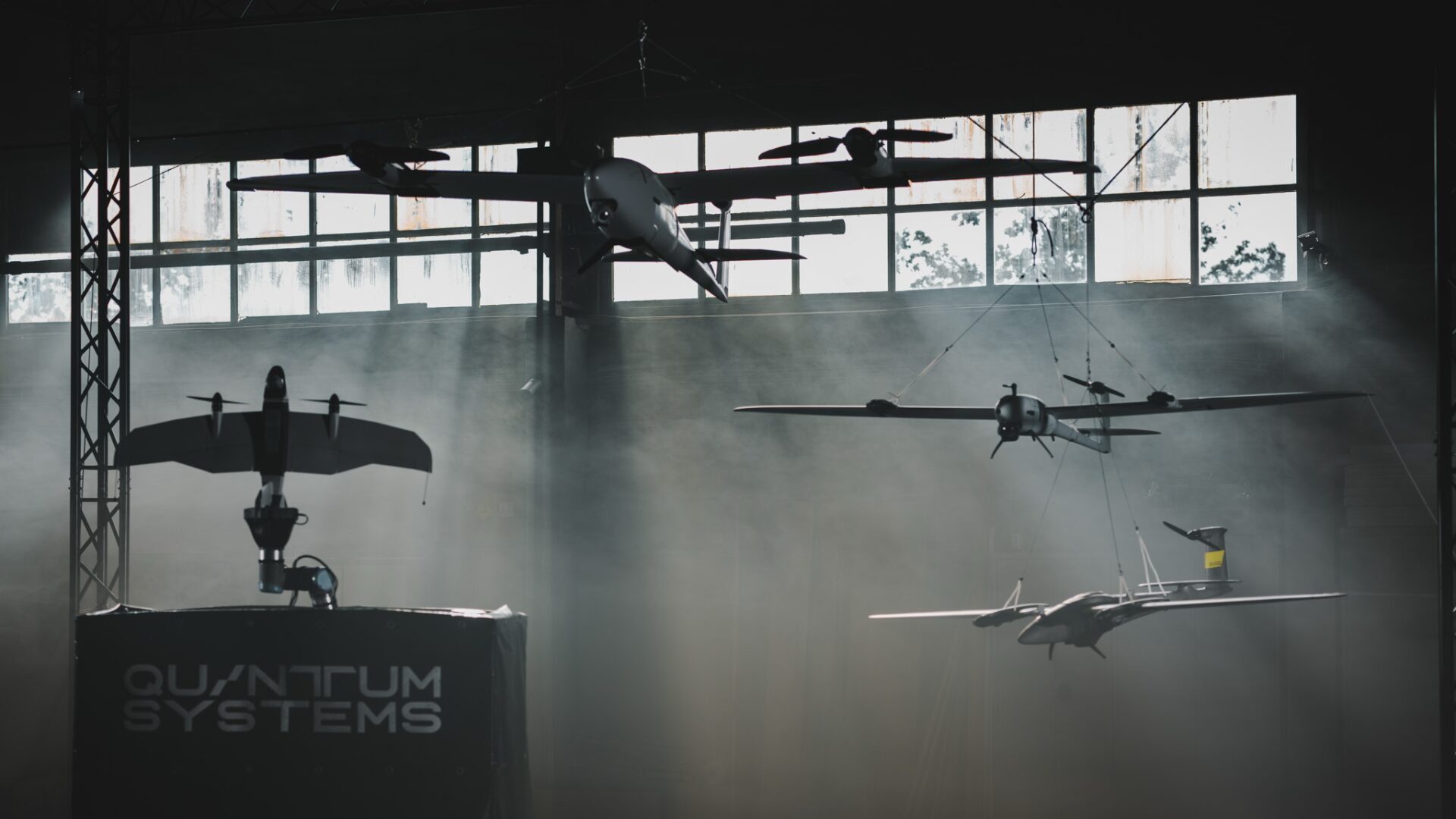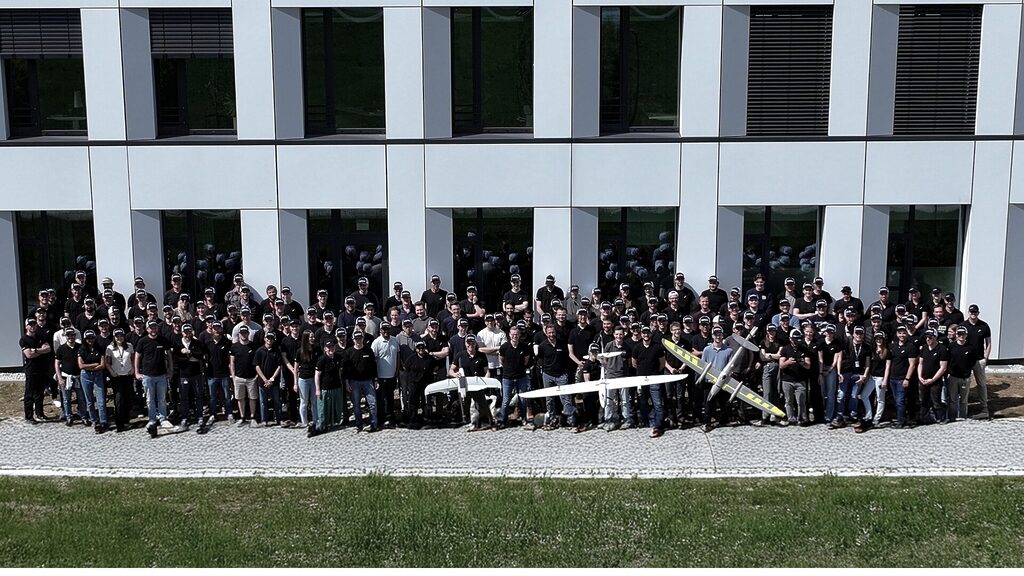11.08.2025
Defence primes need speed, startups need scale

As modern warfare evolves, so does the way defence technology is developed and deployed. Quantum Systems, one of the few European defence unicorns, brings battlefield-tested innovation to the front lines. Ahead of his keynote at Defence Innovation Day in Tallinn, Quantum’s CRO, Martin Karkour shares insights on AI-powered drones, startup growth, and Estonia’s role in NATO innovation.
In fast-moving conflict zones like Ukraine and the Red Sea, autonomous and AI-powered unmanned aerial systems (UAS) are no longer experimental — they are operationally essential. These systems must be able to process sensor input, adjust flight paths, and react to threats in real time.
While human oversight remains crucial, AI reduces the cognitive load on operators. In Ukraine, Quantum’s VECTOR drones have improved endurance and provided situational awareness, allowing faster and more informed decisions during missions.
Looking ahead, Quantum’s CRO Martin Karkour emphasises that AI integration is about more than navigation or image recognition. It enables coordination between crewed and unmanned platforms (known as MUM-T), and supports swarm capabilities, both of which offer advantages in speed, scale, and adaptability.
Quantum Systems recently signed two strategic agreements, one with RENK Gears Private Ltd in April and another with Airbus Defence in June. These collaborations highlight a shift in defence innovation from isolated development to interconnected ecosystems. Startups bring agility and technical focus; larger companies bring production scale and established infrastructure.
“Primes need speed, startups need scale,” said Karkour. He noted that the Airbus partnership formalises an existing working relationship focused on aerial reconnaissance systems, while RENK’s experience in land-based systems strengthens Quantum’s push into autonomy. Estonia, he added, is one of the few countries where such multi-actor collaboration already works in practice.
When asked what defence or dual-use startups should prioritise, Karkour pointed to three things: user feedback, traction from both customers and investors, and staying aligned with the mission. While accelerator programmes have their place, real-world operational testing matters more. “Only real soldiers in real war reveal if your tech can truly survive combat,” he said.
He also encouraged startups to partner with governments that move quickly. Estonia, due to its geopolitical position and digital infrastructure, offers a unique advantage in rapid testing and deployment — especially compared to larger, slower bureaucracies.
Germany’s defence budget is set to grow significantly in the coming years, and while Karkour sees this as a positive development, he warns that budget alone is not enough. “It’s about resilience, industrial capacity, and procurement reform.” What encourages him most is the emergence of a new generation within the Bundeswehr (German Defence Forces) that has worked alongside Estonian and Ukrainian counterparts and understands the urgency of practical innovation.
Quantum’s operations span Germany, Australia, the United States, Ukraine and Romania. Karkour explained that each market offers a different lesson: Ukraine teaches agility, the US focuses on scalability, and Australia prioritises sovereignty and long-term planning.

In that context, Estonia stands out for its digital backbone, cybersecurity expertise, and speed of implementation. Quantum Systems already sources part of its supply chain from Estonia and sees potential to expand furthe
On the question of balancing European strategic autonomy with NATO interoperability, Karkour sees no contradiction. “Systems must work with NATO from day one but also be capable of operating independently if needed.” Quantum’s MOSAIC UXS software is designed with this in mind — open architecture, NATO-compliant, and developed in Europe.
The increased use of commercial-off-the-shelf (COTS) technologies on the battlefield has also raised concerns about quality under pressure. Karkour was direct: “You draw the line at lives.” A prototype may be enough for a demonstration, but trust is only earned when a system survives harsh operational conditions, including jamming, bad weather, and direct threats.
With more non-dilutive funding options now available, such as EDF, EDIRPA, and NATO DIANA, defence startups face the challenge of balancing fast iteration with long public procurement cycles. Karkour advises a three-track strategy: early customer feedback, long-term development through grants, and a commercialisation plan that keeps investors engaged. “Don’t let public funding distort your product–market fit,” he said.
Finally, he addressed the rise of non-traditional investors in defence. In his view, being “defence-ready” means understanding longer timelines, ethical complexity, and a commitment to democratic values. “We’re lucky to have investors at Quantum Systems who understand that defence is a mission, not a hype cycle.”
Looking ahead to Defence Innovation Day on 22 September, Karkour said: “Estonia represents everything that’s possible when a country commits to innovation, security, and sovereignty at the same time.” For him, Estonia’s speed, digital integration, and strong collaboration with allies represent the future NATO needs.
Do you want to hear Martin Karkour’s keynote, as well as other interesting panels and networking opportunities? You can find more info and register for Defence Innovation Day .
Defence Innovation Day is brought to you by Tehnopol and the Ministry of Economic Affairs and Communications through the NATO DIANA Estonian Accelerator. One session is co-curated by Sparkup Tartu Science Park.

















